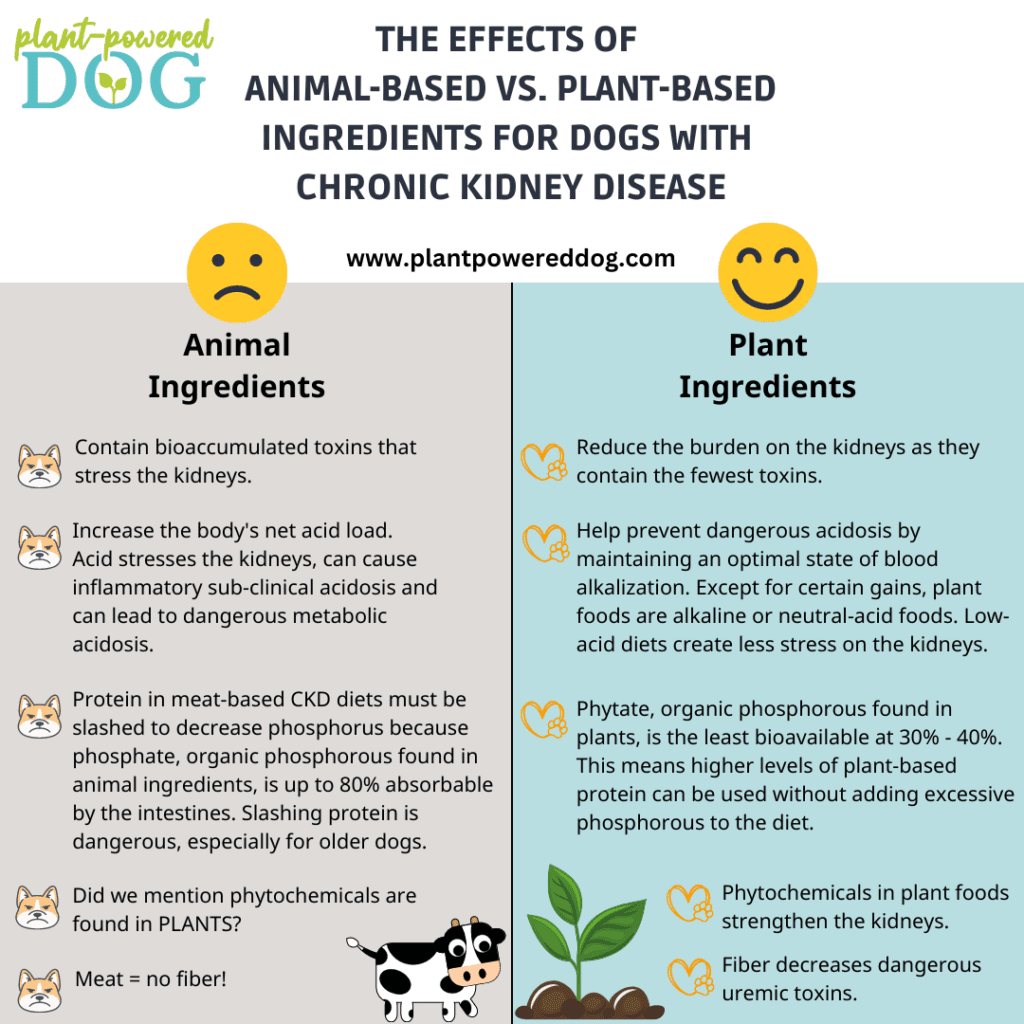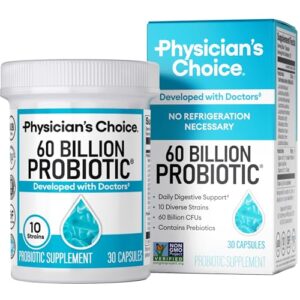Your dog’s health is your top priority, and when they face challenges like kidney disease, you want to ensure they get the best care possible. Diet plays a crucial role in managing this condition, and you might be wondering what homemade options could be best for your furry friend.
You’re not alone in this quest. Many pet owners are searching for effective, nutritious diets that can help support kidney function and improve their dogs’ quality of life. Imagine having the power to make a real difference in your dog’s health, simply by choosing the right ingredients and preparing meals at home.
This guide will reveal the secrets to crafting a diet that not only nourishes but also supports your dog in their time of need. Get ready to discover how you can create a homemade diet that transforms your dog’s wellbeing and brings peace of mind to your life.
Kidney Disease In Dogs
Creating a homemade diet for dogs with kidney disease involves using low-phosphorus foods like lean meats and white rice. Fresh vegetables, such as carrots and green beans, provide essential nutrients. Consult a vet to ensure the diet meets your dog’s specific needs.
Kidney disease in dogs is a serious condition. It affects many dogs worldwide. This disease impacts the kidneys’ ability to filter waste. As a result, toxins build up in the body, causing various health issues. Early detection is crucial for managing the condition effectively. Understanding the symptoms and stages can help pet owners provide better care.Symptoms And Diagnosis
Common symptoms include increased thirst and urination. Dogs may also experience weight loss and decreased appetite. Vomiting and lethargy are also signs to watch out for. A veterinarian can diagnose kidney disease through blood and urine tests. These tests evaluate kidney function and detect abnormalities. Early diagnosis allows for timely treatment and diet adjustments.Stages Of Kidney Disease
Kidney disease progresses through several stages. Each stage requires different management approaches. In the early stages, symptoms might be mild or absent. As the disease advances, symptoms become more severe. The final stage often leads to total kidney failure. Regular veterinary check-ups can help monitor the disease’s progression. Adjustments to diet and treatment may be necessary at each stage.Dietary Needs For Kidney Disease
Dogs with kidney disease have unique dietary needs that require careful attention. A homemade diet can be a great way to ensure your furry friend gets the right nutrients tailored to their health. You want to help your dog feel better, and understanding their specific nutritional requirements is the first step.
Importance Of Nutrition
Nutrition plays a crucial role in managing kidney disease in dogs. It can slow down the progression of the disease and improve your dog’s quality of life. Imagine feeding your dog something that not only satisfies their hunger but also supports their health.
What you feed your dog can make a big difference. The right diet can help control waste buildup in their body and reduce symptoms like nausea and fatigue. It’s all about striking the right balance.
Recommended Nutrients
So, what nutrients should you focus on? First, you should consider protein. While dogs need protein, too much can be hard on their kidneys. Look for high-quality, easily digestible protein sources.
Phosphorus is another crucial element. Dogs with kidney disease often need less phosphorus in their diet. Opt for foods that are low in phosphorus but still nutritious.
Omega-3 fatty acids can be a beneficial addition. They help reduce inflammation and support overall kidney health. You might find these in fish oil or flaxseed.
But here’s a question: Have you ever thought about the role of hydration? Keeping your dog well-hydrated is vital, as it helps their kidneys function better. Consider adding water to their meals or offering wet food.
It’s not just about feeding your dog; it’s about feeding them wisely. With the right nutrients, you can help manage their kidney disease and enhance their life. Are you ready to make a change for your dog’s health?
Crafting A Homemade Diet
Creating a homemade diet for dogs with kidney disease requires careful planning. This diet helps manage symptoms and supports overall health. It’s crucial to focus on low-phosphorus, high-quality protein foods. Fresh ingredients make a significant difference in your dog’s wellbeing.
Choosing Ingredients
Start with fresh vegetables like carrots and green beans. These are low in phosphorus and good for kidney health. Include lean meats such as chicken or turkey. Ensure they are cooked and free from additives. Use white rice or pasta for carbohydrates. They provide energy without taxing the kidneys.
Balancing Nutrients
Maintaining the right balance of nutrients is essential. Limit sodium to reduce strain on the kidneys. Use herbs like parsley for flavor instead of salt. Add omega-3 fatty acids from fish oil. They support kidney function and reduce inflammation. Calcium supplements can help balance phosphorus levels.
Consult a vet to ensure the diet meets your dog’s needs. Each dog’s requirements can vary based on age and health. Regular vet check-ups are important to monitor progress.

Credit: chidog.com
Protein Considerations
Creating the best homemade diet for dogs with kidney disease involves carefully managing protein levels. Low-protein, high-quality sources like chicken and eggs are ideal. Balance with vegetables and grains for optimal nutrition.
Feeding your dog with kidney disease can be challenging, especially when it comes to protein. Protein is essential for your dog’s health, but dogs with kidney issues need a carefully balanced diet. You might wonder how to ensure your furry friend gets the right amount without overloading their kidneys. Let’s break down some important considerations for protein in their diet.Quality Over Quantity
When managing kidney disease in dogs, focus on the quality of protein rather than just the amount. High-quality proteins are easier for your dog’s body to process, which reduces the burden on their kidneys. Think of lean meats like chicken or turkey, which provide essential amino acids without excessive waste byproducts. I remember when my dog Max was diagnosed with kidney disease. I switched to higher-quality proteins, and it made a noticeable difference in his energy levels. Have you tried adjusting your dog’s protein sources?Appropriate Sources
Selecting the right protein sources is crucial. Opt for proteins that are low in phosphorus since this can be taxing on the kidneys. Eggs can be a great choice as they are a complete protein and lower in phosphorus compared to red meats. Consider incorporating fish like salmon, which offers omega-3 fatty acids beneficial for overall health. Remember to cook it thoroughly to avoid any potential risks. Are you exploring a variety of protein sources for your dog’s meals? Balancing protein in your dog’s diet while managing kidney disease requires thought and care. With high-quality sources and appropriate choices, you can help maintain their health and happiness.Managing Phosphorus Levels
Managing phosphorus levels is vital for dogs with kidney disease. High phosphorus can worsen kidney health. Homemade diets can help control phosphorus intake. Careful ingredient selection is necessary. This ensures your dog’s diet supports kidney function.
Low-phosphorus Options
Choosing low-phosphorus foods is crucial. Lean meats like chicken or turkey are good choices. Avoid organ meats. They are high in phosphorus. White rice and pasta are better than whole grains. Potatoes and sweet potatoes are also safe. Green beans and carrots are excellent low-phosphorus vegetables. Always cook them well to aid digestion.
Impact On Kidney Health
Lowering phosphorus helps reduce kidney strain. It prevents further damage. This supports better kidney function. A balanced diet can improve your dog’s quality of life. It may slow disease progression. Consult your vet for personalized advice. Regular check-ups are essential. Monitor your dog’s health and adjust the diet as needed.
Hydration And Fluid Intake
When caring for a dog with kidney disease, understanding the significance of hydration and fluid intake is crucial. Proper hydration can significantly impact your dog’s health and comfort levels. But how can you ensure your furry friend gets enough fluids?
Importance Of Hydration
Water plays a vital role in supporting your dog’s kidney function. Proper hydration helps flush toxins from the body. It also aids in maintaining electrolyte balance, which is essential for organ function.
Think about your dog’s daily routine. Is there enough access to fresh water? A hydrated dog is often more energetic and less likely to suffer from complications related to kidney disease.
Ways To Increase Fluid
There are several practical ways to boost your dog’s fluid intake. Start by offering wet foods. These contain more moisture than dry kibble and can help increase hydration.
Consider using flavored water or broth. Dogs often find these more appealing than plain water, encouraging them to drink more. You might have noticed this when your dog eagerly laps up the broth during meal times.
Experiment with ice cubes as treats. This simple trick can make hydration fun for your dog. Have you ever seen your dog playfully chase an ice cube around the kitchen? It’s both entertaining and beneficial for their health.
Evaluate the placement of water bowls. Are they conveniently located? If your dog can easily access them, they’ll likely drink more throughout the day.
Hydration is not just about providing water; it’s about creating an environment that encourages your dog to drink more. How will you adapt these strategies to your dog’s unique needs?
Supplements And Additives
Supplements and additives can play a vital role in a dog’s diet with kidney disease. They help improve nutrition and overall health. Each supplement and additive has specific benefits. Choosing the right ones can support kidney function and enhance quality of life.
Beneficial Supplements
Omega-3 fatty acids are essential for dogs with kidney issues. They reduce inflammation and support heart health. Fish oil is a common source. It’s widely recommended by veterinarians.
Vitamin B-complex is crucial too. It helps in energy production and maintains nerve function. Dogs with kidney disease often lose B vitamins in urine. So, a supplement can help replenish these.
Antioxidants like Vitamin E can also be beneficial. They protect cells from damage and support immune health. Discuss these options with your vet for tailored advice.
Safe Additives
Adding safe herbs like parsley can be beneficial. It acts as a natural diuretic and supports kidney function. Always use in moderation to avoid overloading the kidneys.
Egg whites can be a safe protein source. They are low in phosphorus and easy to digest. They help maintain muscle mass without taxing the kidneys.
Pumpkin is another safe additive. It’s high in fiber and supports digestion. Its low phosphorus content makes it suitable for kidney health.

Credit: unbridlingyourbrilliance.com
Monitoring And Adjustments
Creating a homemade diet for dogs with kidney disease requires careful monitoring. Adjust the diet based on your dog’s needs. Regular check-ups with the vet help ensure the diet supports kidney health effectively.
Monitoring and adjusting your dog’s homemade diet is crucial when managing kidney disease. It’s not just about creating the perfect meal plan; it’s about ensuring that the diet continues to meet your dog’s needs over time. Regular monitoring and adjustments can make a significant difference in your dog’s health and quality of life. But how do you know when changes are needed, and what should you look for?Regular Check-ups
Regular check-ups with your vet are essential. These visits help track your dog’s kidney function and overall health. Your vet will likely perform blood tests to measure key indicators like creatinine and blood urea nitrogen levels. Consider setting up a schedule for these check-ups. Monthly visits might be necessary at first, then you can adjust based on your dog’s condition. How often do you take your dog to the vet? Keep a record of your dog’s weight, appetite, and energy levels. Bring this information to your vet appointments. It helps in making informed decisions about dietary adjustments.Signs Of Improvement
Notice any positive changes in your dog’s behavior or health? These could be signs that the diet is working. Look for increased energy levels or a healthier coat. These are often early indicators of improvement. Pay attention to your dog’s appetite. Eating well is a good sign, but sudden changes could signal a need for diet tweaks. Observe changes in your dog’s bathroom habits. More regular or comfortable urination can indicate kidney function improvements. You might wonder, how long should you wait to see improvements? It varies, but small changes can be noticeable within a few weeks. Adjustments to a homemade diet aren’t always straightforward. It’s a process that requires patience and attention to detail. Have you experienced a moment when a minor tweak led to significant changes in your pet’s well-being? Incorporating these insights into your routine can make a substantial difference in managing your dog’s kidney disease. The key is to stay vigilant and proactive.
Credit: www.pinterest.com
Frequently Asked Questions
What Foods Are Good For Dogs With Kidney Disease?
Dogs with kidney disease need low-protein, high-quality diets. Include lean meats like chicken or turkey. Add vegetables like carrots and green beans. Avoid high-phosphorus foods such as dairy products. Consult your vet for tailored dietary advice. Homemade diets can be beneficial, but professional guidance is crucial.
Can Homemade Diets Help Dogs With Kidney Issues?
Yes, homemade diets can help manage kidney issues in dogs. They offer control over ingredients and nutrient levels. Focus on low-protein, low-phosphorus foods. Fresh vegetables and lean meats are ideal. It’s essential to work with a vet to ensure nutritional adequacy.
How Do I Start A Homemade Diet For My Dog?
Begin by consulting your vet for personalized advice. Choose low-protein and low-phosphorus ingredients. Cook lean meats and fresh vegetables. Measure portions carefully to meet dietary needs. Regularly monitor your dog’s health and adjust the diet as necessary.
Are Supplements Necessary For Dogs With Kidney Disease?
Supplements can be beneficial for dogs with kidney disease. Omega-3 fatty acids may help support kidney health. Consult your vet about specific needs and dosages. Never add supplements without professional guidance, as they could interfere with medical treatments.
Conclusion
Choosing the best homemade diet for dogs with kidney disease can be challenging. Focus on fresh ingredients. Keep protein levels low. Include healthy fats and carbohydrates. Consult your vet regularly. Monitor your dog’s health and energy. Adjust meals as needed.
Offer plenty of water. Hydration is key. Always prioritize your dog’s comfort and well-being. Homemade diets can support health. They require effort and care. Your dog’s vitality depends on balanced nutrition. You can make a positive impact. With love and attention, you can help your furry friend live better.

